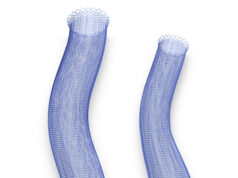
Aethlon Medical and Exosome Sciences have announced that its researchers have successfully isolated brain-specific biomarkers associated with a variety of neurodegenerative disorders. According to a release, the discoveries could have implications in the diagnosis, monitoring and treatment of Alzheimer’s disease, chronic traumatic encephalopathy and traumatic brain injury.
According to a company release, the research studies provide evidence that exosomes can serve as a “liquid biopsy” to diagnose neurologic conditions. While exosomes from the central nervous system have previously been identified in the cerebrospinal fluid, the Aethlon-Exosome Sciences study identified exosomes carrying brain-specific markers tau, beta-amyloid, glycoprotein A2B5 and S100B protein in the peripheral circulation of affected individuals. The discoveries provide a basis for an exosome-based platform that could enable the simultaneous identification of multiple brain specific markers that are transported across the blood-brain barrier and into the circulatory system.
“This advancement represents a new paradigm for brain injuries. In addition to providing definitive diagnosis, the proteomic and transcriptomic characterisation of exosomes isolated specifically from the brain will provide a window into the molecular mechanisms underlying acute and chronic brain injuries,” says Exosome Sciences chief scientific officer, Douglas Taylor.
As a result of the discoveries, brain-derived exosomes can be specifically isolated and the protein and RNA cargoes identified. In studies of brain tissue, specific RNAs have been associated with development of neurological disorders, contributing to the onset and progression of brain injuries. Exosomal RNA and protein cargoes represent surrogates to brain biopsies and have utility as stable, clinically accessible biomarkers for brain injury detection, stratification of patients and therapeutic outcomes.
“With the exosome-based technologies developed by our group, we are at the verge of breakthroughs for the management and treatment of brain injuries and diseases that have been associated with disability and death,” says Cicek Gercel-Taylor, clinical research director at Exosome Sciences.
Circulating biomarkers have been proposed for the definitive diagnosis and monitoring treatment of brain injuries. The approach would enable diagnosing the condition, identifying processes that are difficult to image, monitoring responses to interventions, and predicting those who are at risk for long-term neurologic consequences. However, circulating biomarkers, such as free protein and nucleic acids, are extremely unstable in circulation. Therefore, a high steady-state must be reached for detection, which is generally not observed except in severe cases. To circumvent these issues, exosome-associated biomarkers can be utilised as they are stable and detectable in the circulation.









